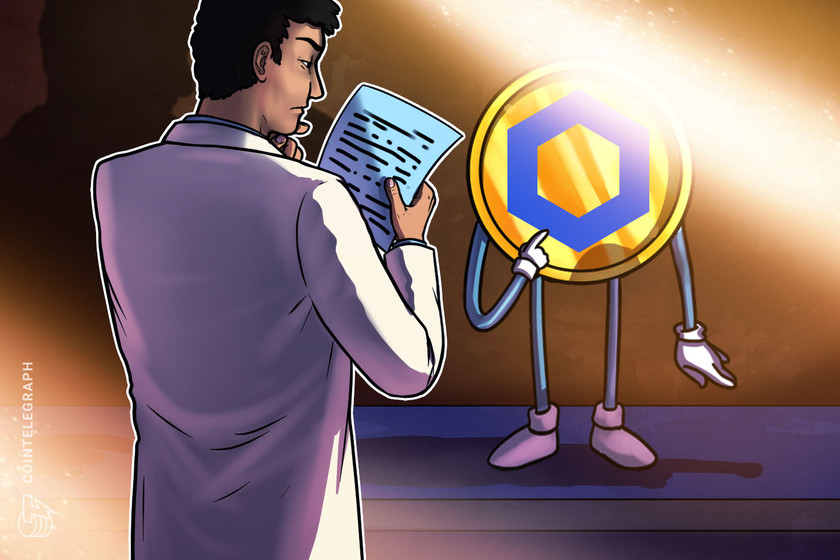Buy the rumor, sell the news? Chainlink (LINK) price drops after staking launch

LINK marines pile in as Chainlink staking launches, but will the event turn out to be a buy the rumor and sell the news event for the altcoin’s price?
Chainlink has a busy start to December when it comes to development launches. The Chainlink (LINK) staking program opened up for early access on Dec. 6 and will expand access on Dec. 8.
According to Chainlink, staking will further secure the project’s node ecosystem and alerting mechanism:
“Stakers gain access to staking rewards for securing the network through timely and valid alerts, and in the future, for slashing and loss protection.”
Historically, mainnet launches and staking incentives stir up a flurry of blockchain activity and data from on-chain analytics firm Arkham shows a sharp uptick in activity.
Chainlink Staking went live 19 hours ago. $LINK marines have flooded the contract with their deposits exceeding 11M Chainlink tokens.
Meaning, over $77.7M of $LINK has been deposited in the contract currently.
The first, and largest, deposit so far was 500k LINK or $3.64M. pic.twitter.com/aB6elCM5PE
— Arkham | Crypto Intelligence (@ArkhamIntel) December 7, 2022
While node providers received access on Oct. 3 with uncapped terms, Chainlink’s early access staking capped the total per person staking at 7,000 LINK. Despite this cap, the staking program has garnered traction, far surpassing 11 million staked LINK on Dec. 6.
The next phase in staking takes place on Dec. 8 which reduces the minimum staking amount from 1 to 0.1 LINK and the overall staking program is currently capped at 25 million LINK.
Even with solid traction from the early public staking launch, LINK price has corrected, losing 4% since Dec. 6.
Higher LINK emissions could spook investors
In order to encourage early adoption, Chainlink set a minimum amount of emissions for the program. The expected emissions for those in the staking program are a minimum of 5% APY for the community and 7% APY for node operators. Community stakers are also expected to lose a 0.25% fee to node operators. Due to these terms, there is a chance LINK becomes hyper-inflationary without enough fees to back up the rewards.

Although staking rewards are locked for 9 to12 months, LINK’s price has not responded well to the development updates.
After reaching a 30-day peak at $9.30, LINK price dropped to $6.80 on Dec. 7 after the staking launch. The drop comes despite a major uptick in social media mentions.

Related: Bitcoin on-chain data shows 5 reasons why the BTC bottom could be in
According to Cointelegraph head of markets, Ray Salmond:
“Crypto prices are down across the board, likely due to traders taking a risk-off stance ahead of next week’s Dec. 13 FOMC meeting. On a more granular view, mainnet upgrades and staking launches tend to exhibit a buy the rumor sell the news dynamic and what we see from LINK price is not defying the norm. Concurrently, we can see ApeCoin also pulling back on the eve of its staking launch. From the view of technical analysis, LINK price remains in its 211-day range between $9.50 to $5.60. While the price is below the range midline, it is currently testing the 20-day moving average and previous corrections have found support at $6 and $5.50.”

While the LINK staking program may be beneficial to the longevity of the Chainlink ecosystem, the market is currently responding negatively.
As further developments and updates continue, investors may begin to understand the staking dynamics more deeply and if LINK emissions prove to be sustainable, the initiative could prove to be a benefit to investors and the ecosystem as a whole.
The views, thoughts and opinions expressed here are the authors’ alone and do not necessarily reflect or represent the views and opinions of Cointelegraph.



